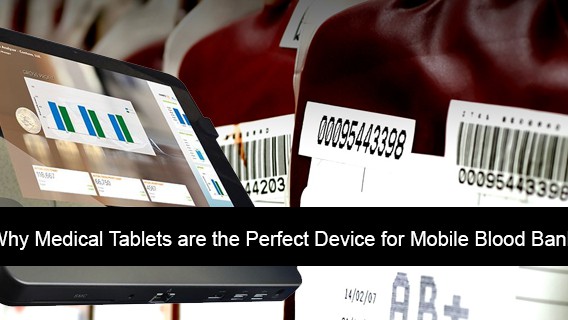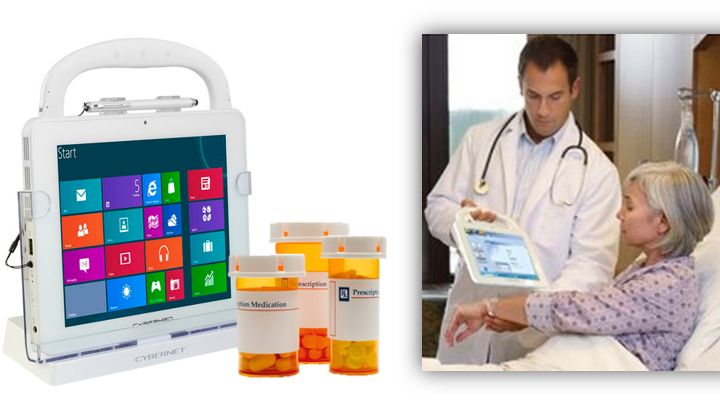Enabling a productive and efficient collaboration is one of the top priorities of today’s IT professionals because it is the productive and successful teamwork that makes a great company. Even though that statement has been true for decades, the technology that helps enable the productive workforce has changed. Mobile technology allows businesses to recruit top talent across oceans now, and empower their on-site workers with devices that afford the superior level of connectivity and productivity on the go.
Know Your Employees’ Needs
The technical field workers aren’t the only employees who need powerful mobile solutions. Many jobs suggest a certain degree of a remote lifestyle. Employees who regularly have meetings with clients, or business trips, telecommuters of all sorts, engineers and sales people, drivers, and even PR and marketing rely on the mobile technology to do more within the work hours. Some of them require the mobility to be able to work late hours that do not coincide with your typical office hours. Yet, they need to be able to connect to corporate systems, have access to the relevant data and communicate with the rest of the team efficiently.
Irrespective of the duties, assignments, location and the time difference, your employees need to be able to collaborate and communicate as if there was no location or time limitation at all.
If you understand the challenges of your mobile workforce, you will be able to choose the adequate mobile solution to ensure their connectivity and flexibility needs are met. We believe Windows business tablets have a wealth of advantages that make your mobile workforce efficient, and here is why.
First, let us outline the most common and urgent feature requests of the workers who rely heavily on mobile devices to do their work.
According to a 2016 survey by ESG Group, employees have a significant impact on the business mobility strategies, and their requests shape the IT solutions organizations deploy. In fact, the IT decision-makers base their choices on the employee requests, as these are key to ensuring the employees can perform their functions properly throughout an extended period. Here are the top employee requests that influence an organization’s mobility strategy:
- Enhanced collaboration – easy to use collaboration tools for teamwork, email, chat, video conferences, file sharing, document verification and signing capabilities are paramount. They must be secure and consistent throughout the organization. Windows, as no other OS, provides the compatibility with your enterprise applications and the familiarity of the interface. So, your employees do not waste time on sorting out the new UI, location of the settings, apps, and the keyboard layout.
- Remote access to business applications. All employees need to have a timely and secure connection to company servers and the tools they rely on to do their work. Your field and mobile employees are no exceptions. They should be able to access the latest versions of the files, the CRM, or the cloud storage without their business tablets freezing or lagging. Some need the resources for graphic-intensive applications and video playback. Others need advanced connectivity for those cases when WiFi is unavailable. You need to provide them with the 3G, 4G, Bluetooth, Wi-Fi, GSM and CDMA mobile network support that is not tied to a particular provider, and our business tablets come with advanced connectivity options and ample resources for heavy multitasking.
- Simplified login process. Security must be reliable but easy-to-use. Otherwise, it hampers the productivity, if your employees need to spend a lot of time on security precautions. Integrated RFID Single Sign-On, fingerprint scanner, Smart Card or CAC reader ensure your employees can login fast and securely. It also means no one can access your corporate data if the device is lost, stolen, or left in a public place. No BYOD device affords such level of remote administration and cyber security tools as Windows business tablets with integrated biometric scanner or SSO.
- Simplified file access and edit. Windows business tablets provide the most fully-fledged document editing capabilities out of all mobile platforms. MS Office combined with your file storage enable the efficient document access and editing features equal to those of your desktop computers.
- Uptime. Insufficient battery capacity hampers the entire idea of a productive mobile workforce. Your employees need a full-shift uptime and flexible charging options, such as hot-swap batteries, or backup batteries that provide business-class uptime.
On the other end of the line is your IT department that needs to ensure:
- Ease of use (for the end users) to minimize the volume of support queries. Usability is important to employee satisfaction and productivity. We have seen many well-intended initiatives fail because they lacked the simplicity required by non-technically-savvy users.
- IT control – security, visibility and control must be top of mind when deploying any mobile initiative. Too often, BYOD and uncontrolled use of consumer applications and cloud storage solutions lead to the loss of data visibility. It means the organizations no longer know what data they have, where it is stored, who can access it, how and if it is protected. This scenario spells doom to companies that need to comply with certain data protection regulations, such as HIPAA in the U.S. healthcare system, or the incoming GDPR for any organization that offers goods or services to the European citizens.
The IT control also expands to the device visibility, when your IT staff can easily manage data, applications, and devices on your network and beyond it, remotely. You must be able to limit the use of potentially harmful applications and hardware components – it is a business necessity in many sectors. For example, Deutsche Bank banned the use of consumer chat applications, such as WhatsApp or Skype, for any work-related communication. Many companies have banned the notorious Pokemon GO for its privacy-invasive practices that border on surveillance.
- Compatibility with legacy infrastructure. Introducing new IT solutions into an existing infrastructure that has a heavy footprint of legacy systems always gives rise to an increased complexity – of deployment, troubleshooting, and usability. Windows business tablets fit well into a legacy infrastructure, supporting the older interfaces and affording the luxury of full-size and mini USB ports, and the ability to transfer data to and from USB dongles, and even encrypting it on the go. The ability to customize the ports you need in every business tablet lets you provide the mobile solution that best fits your employees’ needs from the first day of use.
- Customization. Organizations embrace the technological change and deploy new IT solutions to help their employees be connected, productive and satisfied. Sometimes, the best of intentions fail because a technology does not work as advertised – the end users find it difficult to use, lacking features or coming with a steep learning curve. To avoid that pitfall, make sure your key departments have the time to test the business tablets prior to the acquisition, and the manufacturer is responsive and flexible enough to accommodate your requests in a customized build. Adding (or removing) hardware components, features and software affords you the flexibility that translates into high ROI of your mobile initiative.
Cybernet offers a risk-free demo of our business tablets and wall-mountable touchscreen All-in-One computers, so that you get the performance and features you need. Contact us today to request a free demo unit!
Why Medical Tablets are the Perfect Device for Mobile Blood Banks
August 13, 2015
The pervasive use of electronic devices in the professional arena has changed the way tasks are being carried out. The use of electronics devices has had a tremendous impact on specific industries. The medical…
0 Comments4 Minutes
3 Usages of Medical Tablets in a Mobile Environment
April 16, 2018
As the health landscape changes, the technology adapts to fit the needs of the people. Healthcare professionals strive to reach patients that aren't always able to travel to healthcare centers; that's one of the reasons…
0 Comments6 Minutes
Implementing Efficient Medication Dispensing Systems through the Use of Medical Tablets and Mobile Solutions
April 6, 2015
Many hospitals and healthcare facilities have increasingly adopted a variety of mobile solutions to address a number of task-related issues. The influx of technological tools like all- in-one computers and medical…
0 Comments4 Minutes
You Can't
Learn from a Pop-up
But we can deliver knowledge to your inbox!
We dive deep in the industry looking for new trends, technology, news, and updates. We're happy to share them with you.
Knowledge, News, and Industry Updates Right in Your Inbox





